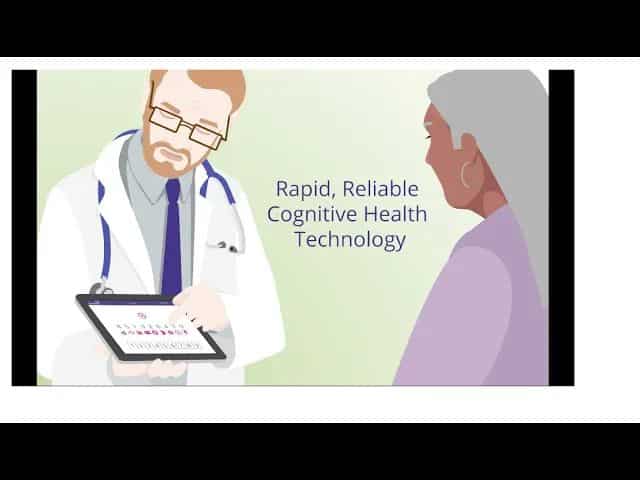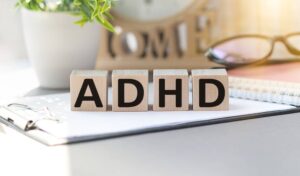Many people nationwide are experiencing a decline in their mental health, and rates of ADHD, anxiety, depression, and substance misuse are rising.
At BThere Healthcare, the experienced team –offers a range of services, including mental health support and counseling, to patients in the state of Maine. They provide treatment for attention-deficit/hyperactivity disorder (ADHD), depression, anxiety, opioid addiction recovery support, and other common behavioral health conditions.
Our Remote ADHD Program is a pioneering solution designed to support individuals managing ADHD from the comfort of their homes. Most insurance plans, including MaineCare, recognize and cover our program, ensuring accessibility and affordability for all. We also offer flexible cash payment options for those who prefer it.
Our innovative approach combines personalized care with the power of group visits, offering a unique blend of individual support and community engagement. Join us as we navigate the path to better managing ADHD together with the convenience and flexibility of remote access.
Benefits for Mental Health via Telehealth
Compared to in-office consults, mental health using telemedicine has many advantages. While in-person counseling and consultation is a better fit in some instances, you should consider the benefits telemedicine visits offer:
- More flexibility
- Less deviation from your routine
- Cost-effectiveness
- More opportunities for support
- More comfort because you’re in your element

Neurocognitive and Psychological Technology
BThere Healthcare is equipped with validated tools to access function rapidly, reliably, and comprehensively across neuropsychological domains using the Remote Neuropsychology Health Platform. Through those Health platforms, we offer a customized mental health assessment before, during, and after your visit through Braincheck and review by one of our providers.

What is ADHD?
Persistent disorganization, fidgeting, and forgetfulness can all be signs of a behavioral disorder called attention-deficit/hyperactivity disorder (ADHD), which affects people of all ages. BThere Healthcare is a telemedicine-based practice offering expert ADHD evaluations and treatment for patients in Maine. Call or Schedule an appointment online for ADHD testing and medicine today.
ADHD affects both adults and children but is often first diagnosed in school-aged children. Since school is a structured setting, the symptoms of ADHD often first become apparent in the classroom. If your child has ADHD, you might hear initial concerns from their teacher.
How can I address my ADHD?

Discover the benefits of our Remote ADHD Program in Maine, tailored to provide comprehensive support from the comfort of your home:
- Remote Neuropsychologist Testing: Begin with accurate ADHD confirmation through state-of-the-art remote testing.
- 1:1 Telehealth Evaluation: Receive personalized attention from expert providers in a one-on-one telehealth session.
- Group Visit Availability: Benefit from remote group visits' support and shared experiences, fostering a sense of community and mutual support.
- Cognitive Behavioral Therapy (CBT), mindfulness therapy, and potential executive coaching
- Insurance Coverage: Our program is accessible and affordable, covered by most insurance plans, including MaineCare and Medicare.
- Cash Option: For those without insurance or who prefer an alternative payment method, we offer a cash payment option at just $69 per month. If you're interested in this option, please click here to sign up in our app: https://btherehealthcare.repeatmd.app/signin
Our program takes a holistic approach to managing ADHD. Medication is considered only after thorough testing and assessment by our providers. Our aim is to provide tools to effectively manage ADHD and reduce reliance on medication over time. Treatment decisions are made collaboratively between you and your provider, ensuring personalized care.
If you are looking for a program that only provides medication to manage this, BThere ADHD program is NOT the program for you. You must agree to this approach to enroll.
What Are Telehealth Services For Mental Health and ADHD?
Telehealth for mental health in ADHD involves providing ongoing mental health services, including personalized and private therapy counseling and medication management, all performed remotely via video conferencing phone calls and or secure messaging platforms.
What Services Can Be Provided By Telehealth For ADHD?
Some of the most common services that can be performed via telehealth include initial assessments and consultations, individual and possibly group therapy sessions, medication management, follow-up appointments, psychoeducation, and support groups.
Can ADHD Be Effectively Treated With Telehealth?
Yes, in many cases, telehealth has been shown to be an effective treatment option for individuals who are diagnosed with ADHD in addition to other types of mental health conditions. Research indicates that telehealth interventions can often produce outcomes that are comparable to in-person care sessions. However, it's important to note that not all individuals diagnosed with ADHD or other mental health conditions will benefit exclusively from telehealth services.
What Are The Benefits of Telehealth For ADHD and Other Mental Health Disorders?

How Does Telehealth Work For ADHD Assessments?
Similar to in-person assessments for ADHD, a telehealth assessment typically involves comprehensive evaluation conducted via video conferencing or phone calls. These evaluations can include questionnaires, interviews, and assessments of your functioning and symptoms.
Can ADHD Medication Be Prescribed Via Telehealth?
Yes, in many cases, you can be prescribed ADHD medication with telehealth psychiatrists, and other qualified and experienced healthcare professionals can conduct medication evaluations, monitor your treatment and or progress, and prescribe medications as they feel appropriate via telehealth.
What Are The Benefits of Telehealth For ADHD and Mental Health Disorders?
If you choose to use telehealth for diagnosis, management, and treatment of ADHD some of the most common benefits include:
- Convenience - telehealth appointments can be scheduled at your convenience instead of you having to adhere to the office's frequently flexible scheduling. This will reduce your need to take off work from school or work.
- Increased access to care - opting for telehealth services will eliminate any geographic barriers you may have, allowing you access to ADHD professionals who can specialize in your care who specialize in treating ADHD.
- Privacy and comfort - Many individuals who are diagnosed with ADHD feel more comfortable and less anxiety-ridden when they're able to receive care from the comfort of their homes. In turn, this can enhance the professional and therapeutic relationship between their care provider and themselves.
- Access to specialists - Patients with ADHD, in addition to other mental health concerns, such as anxiety, depression, or OCD, may benefit from having ongoing access to specialists all in one place. They can access their comprehensive care team from the comfort of their home, undergo comprehensive evaluations, and receive personalized treatment through telehealth.
Join our Remote ADHD Program and enjoy the convenience of receiving expert care without the need to travel, all while being part of a supportive community.
What Are Common Signs of ADHD in Children?
Children with ADHD often exhibit a range of potentially challenging behaviors, such as:
- Inattention: Difficulty staying focused, making careless mistakes, and being easily distracted.
- Hyperactivity: Frequent fidgeting, inability to sit still, and excessive talking.
- Impulsivity: Acting without thinking, interrupting others, and having trouble waiting their turn.
These behaviors often lead to academic difficulties and strained relationships with peers. They may also cause conflicts with authority figures.
What Are Common Signs of ADHD in Adults?
ADHD in adults can manifest differently than in children. Common signs include:
- Inattention: Difficulty with organization, forgetting appointments or tasks, and losing items often.
- Hyperactivity: Feelings of restlessness, trouble sitting through meetings, and a tendency to take on many tasks at once.
- Impulsivity: Making hasty decisions, interrupting conversations, and having difficulty waiting in lines.
Adults with ADHD may struggle with maintaining employment and managing responsibilities. They may also have trouble sustaining relationships.
How Does ADHD Typically Manifest in a School Setting?
In a school setting, ADHD can impact a child's learning and social interactions. Manifestations may include:
- Difficulty following instructions: Struggling to complete tasks or understand assignments.
- Poor organizational skills: Trouble keeping track of homework, school supplies, and deadlines.
- Frequent daydreaming: Appearing not to listen when spoken to directly.
- Disruptive behavior: Speaking out of turn, leaving their seat, and disturbing classmates.
Teachers may notice that these students need more supervision and redirection than their peers.
How Do I Know if I Need Medication for ADHD Treatment?
When deciding whether to use medication for ADHD treatment, there are several factors to consider:
- Severity of symptoms: Medication might be beneficial if ADHD impairs daily functioning or quality of life.
- Response to other treatments: Medication could be a helpful addition if behavioral therapy and lifestyle changes have not been effective.
- Side effects and risks: Consult a healthcare provider to weigh the benefits against possible side effects. Some of the most well-known side effects include sleep difficulties, appetite changes, and headaches.
How Can Parents Support a Child With ADHD at Home?
Parents play an essential role in supporting children with ADHD. They can offer support by implementing the following strategies:
- Create structure: Establish a consistent daily routine to provide stability.
- Use positive reinforcement: Reward good behavior with praise or small incentives.
- Break tasks into manageable steps: Simplify instructions and provide frequent breaks. This helps to prevent overwhelming the child.
- Encourage physical activity: Regular exercise can reduce hyperactivity and improve concentration.
- Collaborate with educators: Maintain open communication with teachers. This will ensure consistency between home and school strategies.
What Types of Therapy Are Most Effective for Managing ADHD?
For managing ADHD, behavioral therapies are often the most effective:
- Cognitive Behavioral Therapy (CBT): Helps individuals with ADHD manage their symptoms by teaching them coping strategies to address negative thinking patterns and improve organizational skills.
- Dialectical Behavior Therapy (DBT): A cognitive-behavioral approach that teaches individuals skills to manage emotions, tolerate distress, and improve relationships.
Social skills training can be beneficial, For adults, therapy may also focus on time management, decision-making, and emotional regulation.
Is ADHD a Genetic Condition?

Scientists have identified several genes that may contribute to ADHD. However, no single gene is responsible for it.
A family history of ADHD increases the likelihood of a child developing the condition. Environmental factors and brain development also play a role, though. These factors interact to influence whether someone develops ADHD and the severity of their symptoms.
Can Diet and Nutrition Impact ADHD Symptoms?
Diet and nutrition can play a role in managing ADHD symptoms. However, the impact varies from person to person.
Some studies suggest that certain food additives, such as artificial colors and preservatives, may exacerbate hyperactivity in children. On the other hand, omega-3 fatty acids, found in fish like salmon, may positively affect ADHD symptoms, as they are essential for brain health. Reducing sugar intake and maintaining a balanced diet with whole foods can also help stabilize energy levels and improve focus.
Diet changes alone will not cure ADHD. Still, making healthy nutritional choices may complement other treatments.
What Strategies Can Help Adults Manage ADHD in the Workplace?
Adults with ADHD often face challenges with time management, focus, and organization at work. These tips can help with managing ADHD in the workplace:
- Creating a structured routine
- Using tools like calendars, to-do lists, and project management apps to track tasks and deadlines
- Breaking large projects into smaller, manageable steps to improve focus and productivity
- Setting specific time intervals for work, followed by short breaks (known as the Pomodoro technique) to maintain concentration
- Minimizing distractions in the workspace
- Seeking accommodations, such as flexible work hours
Can ADHD Co-Exist With Other Mental Health Conditions, and How Is This Treated?
Yes, ADHD often co-exists with other mental health conditions. This situation is known as comorbidity. Common co-occurring conditions include:
- Anxiety
- Depression
- Learning disabilities
Individuals with both ADHD and other conditions often require an integrated treatment approach. For example, someone with ADHD and anxiety might benefit from both ADHD medication and therapy to manage anxiety symptoms.
Treatment should be tailored to address each condition. This might involve combining medication, psychotherapy, and behavioral strategies. Healthcare providers should also work with patients to ensure that all aspects of their mental health are considered and treated together.
Why Choose Bthere Healthcare?
Choosing BThere Healthcare for ADHD diagnosis and treatment means receiving comprehensive and accessible care through our advanced telemedicine platform and house calls (for local patients).
Our services bridge the gap in access to care, eliminating long wait times to see a provider. This convenience is particularly beneficial for rural residents and busy families. It makes it easier to obtain services like annual exams, acute care visits, and mental health support.
Our team is trained in diverse healthcare areas, including senior care, mental wellness, and family medicine. We conduct thorough evaluations during every remote or home visit. This personalized approach allows patients to receive detailed and attentive care that empowers them to make informed decisions about their health and well-being.
Schedule a Telehealth Consultation Today.
Do you want to learn more about these services? Feel free to reach out to us via text message at 207.200.5907 if you have any queries or are interested in signing up. You can also book appointments online.
